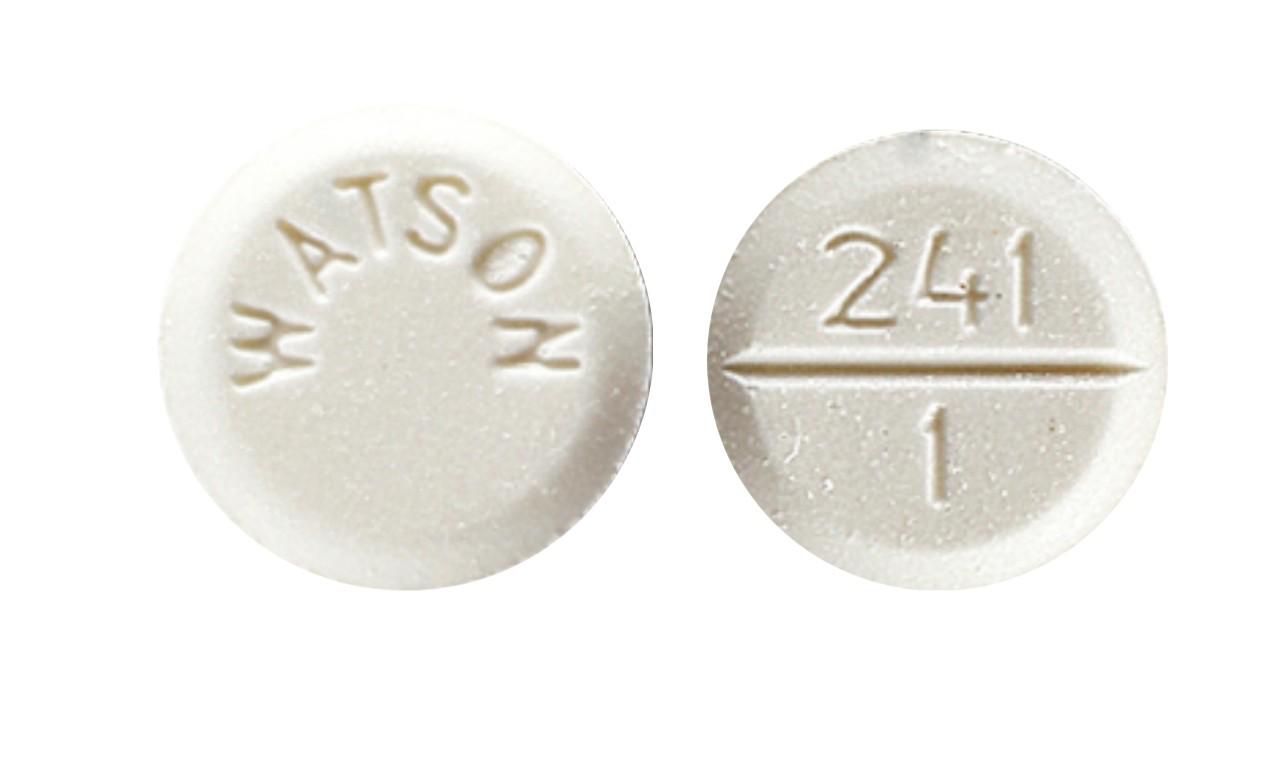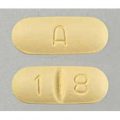The white, round pill with the imprint WATSON 241 1 has been identified as Lorazepam 1 mg. It is supplied by Watson Laboratories, Inc.. Lorazepam belongs to a group of medicines called benzodiazepines. It’s used to treat anxiety and sleeping problems that are related to anxiety. It can be taken to help you relax before an operation or other medical or dental treatment.
Anxiety is frequently connected to sleeping problems. Excess worry and fear make it harder to fall asleep and stay asleep through the night. Sleep deprivation can worsen anxiety, spurring a negative cycle involving insomnia and anxiety disorders. Anxiety disorders are the most common mental health problem in the United States, and insufficient sleep is known to have sweeping negative implications for overall health. As a result, understanding and addressing the links between anxiety and sleep can be fundamental to physical and emotional wellness.
What special precautions should I follow?
Before taking WATSON 241 1 pill,
- tell your doctor and pharmacist if you are allergic to lorazepam, alprazolam (Xanax), chlordiazepoxide (Librium, in Librax), clonazepam (Klonopin), clorazepate (Gen-Xene, Tranxene), diazepam (Valium), estazolam, flurazepam, oxazepam, temazepam (Restoril), triazolam (Halcion), any other medications, or any of the ingredients in lorazepam tablets or concentrate. Ask your doctor or pharmacist for a list of the ingredients.
- tell your doctor and pharmacist what prescription and nonprescription medications, vitamins, nutritional supplements, and herbal products you are taking or plan to take. Be sure to mention any of the following: antihistamines; digoxin (Lanoxin); levodopa (in Ritary, in Sinemet, in Stalevo); medications for depression, seizures, Parkinson’s disease, asthma, colds, or allergies; muscle relaxants; oral contraceptives; probenecid (Probalan, in Col-Probenecid); rifampin (Rifadin, Rimactane, in Rifamate, in Rifater); sedatives; sleeping pills; theophylline (Elixophyllin, Theo 24, Theochron); tranquilizers; and valproic acid (Depakene).Your doctor may need to change the doses of your medications or monitor you carefully for side effects.
- tell your doctor if you have glaucoma. Your doctor will probably tell you not to take lorazepam.
- tell your doctor if you have or have ever had seizures; or lung, heart, or liver disease.
- tell your doctor if you are pregnant, plan to become pregnant, or are breastfeeding. If you become pregnant while taking lorazepam, call your doctor immediately.
- talk to your doctor about the risks and benefits of taking this medication if you are 65 years of age or older. Older adults should take lower doses of lorazepam because higher doses may not be more effective and are more likely to cause serious side effects.
- if you are having surgery, including dental surgery, tell the doctor or dentist that you are taking lorazepam.
- you should know that this medication may make you drowsy. Do not drive a car or operate machinery until you know how this medication affects you.
How and when to take WATSON 241 1 pill
Always take lorazepam exactly as a doctor or pharmacist has told you.
Lorazepam tablets come as 0.5mg, 1mg and 2.5mg tablets. The liquid contains 1mg of lorazepam in each 1ml.
The usual dose for:
- anxiety – 1mg to 4mg each day; your doctor will tell you how often you need to take it
- sleep problems – 1mg to 2mg before bedtime (lorazepam will start to work in around 20 to 30 minutes)
- a pre-med for adults – 2mg to 3mg the night before the procedure and then 2mg to 4mg about 1 to 2 hours before your procedure
- a pre-med for children aged 1 month to 11 years – dose will depend on the child’s weight
- a pre-med for children aged 12 to 17 years and up – 1mg to 4mg the night before the procedure and/or at least 1 hour before the procedure
If you’re older than 65 years or have liver or kidney problems, a doctor may recommend a lower dose.
Will my dose go up or down?
Lorazepam is usually prescribed for a short time, from a few days to 4 weeks. Your dose may go up or down until your doctor is happy you’re on the right dose.
Your doctor may gradually reduce your dose at the end of the course of treatment before stopping completely.
What if I forget to take it?
If you forget to take your lorazepam:
- for anxiety – if it’s less than 3 hours since your missed dose, take it as soon as you remember. If more than 3 hours have passed, skip the missed dose.
- for sleep problems – leave out the missed dose if you have not taken it by bedtime. Take you usual dose the next night.
- before an operation or procedure (pre-med) – read any information you were given by the hospital about your procedure, which may have advice about missed doses. If it does not, call the hospital to ask what to do next.
If you forget to take lorazepam, never take a double dose to make up for a forgotten tablet.
What if I take too much?
In case of overdose, call the poison control helpline at 1-800-222-1222. Information is also available online at https://www.poisonhelp.org/help. If the victim has collapsed, had a seizure, has trouble breathing, or can’t be awakened, immediately call emergency services at 911.
What are the possible side effects of WATSON 241 1 pill?
WATSON 241 1 pill may cause serious side effects including:
- severe drowsiness,
- thoughts of suicide or hurting yourself,
- unusual changes in mood or behavior,
- confusion,
- aggression,
- hallucinations,
- worsened sleep problems,
- sudden restless feeling or excitement,
- muscle weakness,
- drooping eyelids,
- trouble swallowing,
- vision changes,
- upper stomach pain,
- dark urine, and
- yellowing of the skin or eyes (jaundice)
Get medical help right away, if you have any of the symptoms listed above.
The most common side effects of WATSON 241 1 pill include:
- dizziness,
- drowsiness,
- weakness,
- slurred speech,
- lack of balance or coordination,
- memory problems, and
- feeling unsteady
Tell the doctor if you have any side effect that bothers you or that does not go away.
These are not all the possible side effects of WATSON 241 1 pill. For more information, ask your doctor or pharmacist. Call your doctor for medical advice about side effects. You may report side effects to FDA at 1-800-FDA-1088.





